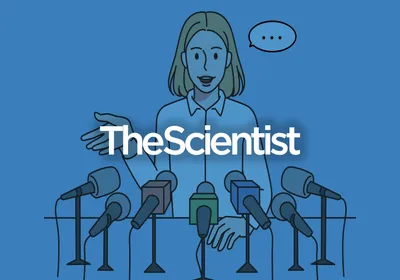ABOVE: © ISTOCK.COM, CALVINDEXTER
The COVID-19 pandemic has laid bare the vast divide that separates public opinion and policy from the advice of the scientific community. This isn’t surprising—debates around climate change and gun control and even direct polling data repeatedly tell us that a significant number of Americans don’t believe that scientists’ voices belong in policy making. Unfortunately, we cannot control the very real psychological, societal, and political roadblocks that stand between us and public trust. We can, however, control our voices. In 2012, the United States employed more than a million full time–equivalent researchers. We are well educated, reasonably well compensated, technologically savvy, and well positioned to be a force both nationally and locally in the development of evidence-based policy.
But we often aren’t, because it’s not our job.
We are not trained or incentivized to translate our work to a lay audience. While individuals and organizations specializing ...


















